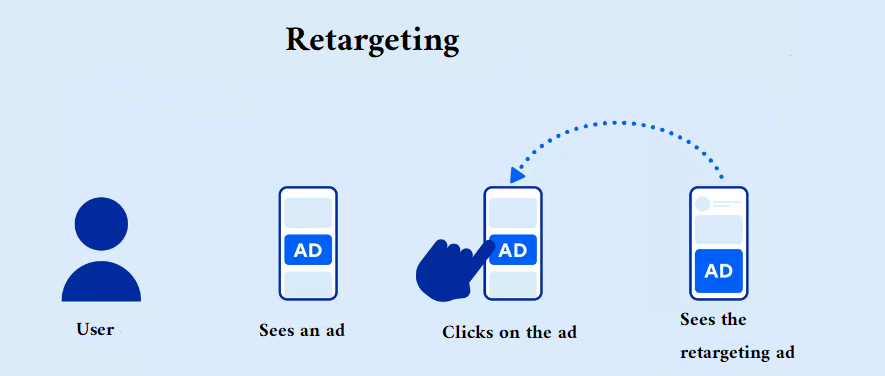Stay updated with the latest trends and insights. Let’s check out PPC posts from valuable sources.
Reevaluate your match type and bidding strategy by OPTMYZR

Navah Hopkins’ study examined broad versus exact match keyword types in online ads and compared bidding strategies:
Analyzing 2,637 accounts, exact match consistently outperformed broad match in metrics like CPC, CTR, CPA, and ROAS. If broad match works, advertisers shouldn’t rush to change, but should consider testing. Maximize Conversion Value was superior in most metrics, challenging the idea that higher CPA always means better customers. Instead, use Max Conversion Value to assess customer worth. Hopkins emphasizes regular testing in online advertising, urging advertisers to constantly refine their strategies for best results.
Read on OPTMYZR
What to do when performance tanks in PPC by Search Engine Land

In the realm of PPC campaigns, performance dips can be alarming. Addressing these downturns promptly is essential.
Issues can be broadly categorized into internal and external factors. Internal challenges, such as budget miscalculations or keyword missteps, are within an advertiser’s control. Tools like the change history report in Google Ads can shed light on these. It’s also vital to liaise with other departments, like the development team, to ensure site modifications don’t inadvertently impact campaigns. Externally, keep an eye on competitors and seasonal influences that might affect performance. To stay ahead, annotate significant changes in reports, establish a quality assurance process, and prioritize robust password security.
Read on Search Engine Land
7 Proven retargeting strategies for higher conversion rates by OPTMYZR

Retargeting effectively reconnects with past website visitors using browser cookies to monitor user actions and craft tailored ad campaigns.
Emphasizing ad copy over visuals is crucial since the audience is already acquainted with the brand. Offering enticing discounts can recapture potential buyers, and incorporating FOMO (Fear of Missing Out) can drive immediate action. Reminding users of the unique benefits your brand offers and refining your call to action ensures clarity and urgency. Testing various ad display times can further optimize engagement, and continuous data tracking is pivotal for campaign success. In essence, retargeting is a strategic tool to convert returning visitors, leveraging their prior interest in your brand.
Read on OPTMYZR
5 Google Analytics reports every PPC marketeer needs to know about by Search Engine Journal

These five pivotal reports will help marketeers adapt to the new Google Analytics 4 (GA4) interface after migrating from Universal Analytics (UA).
GA4 has introduced a paradigm shift for marketers accustomed to the Universal Analytics platform. This transition requires marketers to familiarize themselves with a new interface and recreate their essential reports.
- Interests Segment Report: Previously “In-Market Segments” in Universal Analytics, this report delves into audience behavior and interests.
- Site Search Report: Shows user search patterns on a site, indicating product gaps and user needs.
- Referrals Report: Highlights top referral websites and their conversion efficacy.
- Top Conversion Paths Report: Maps user touchpoints leading to conversions, vital for top-of-funnel strategies.
- Geo-Location Report: Details user locations, revenue, and conversions, guiding location-specific bid adjustments.
Read on Search Engine Journal
Value-based bidding drives Google Ads success by Practical Ecommerce

Google Ads has seen a shift towards value-based bidding by emphasizing the significance of assigning values to every conversion action.
This approach ensures that conversions are optimized for profitability, not just quantity. Automated bidding thrives when each conversion, whether a purchase or form submission, carries a distinct value. Google’s “maximize conversion value” and “target return on ad spend” (tROAS) bid strategies are tailored to help advertisers focus on profitability. The tROAS strategy, in particular, stands out for optimizing profit over mere conversions or revenue.
Read on Practical Ecommerce
Advertisers will spend $84 billion on ad fraud this year by Marketing Brew

Ad fraud continues to plague the digital advertising industry, with a recent report from Juniper Research revealing alarming figures.
In 2023, ad fraud is set to cost marketers a staggering $84 billion, which equates to roughly 22% of the $382 billion allocated for online advertising. Mobile advertising is even more susceptible, with fraud consuming about 30% of the budget. The situation is predicted to escalate; by 2028, digital advertising expenditure will reach $747 billion annually, with 23% lost to fraud. North America is anticipated to bear the brunt of this loss, accounting for 42% of the ad spend loss, followed by India.
Read on Marketing Brew
Google Ads location targeting: 5 big mistakes to avoid by WordStream

Local businesses face challenges in online visibility, and Google Ads location targeting can be a game-changer. However, many advertisers fall into pitfalls that can hinder their campaigns.
Digital advertising is complex, and while Google Ads location targeting promises precision, many advertisers fall into common traps. While many advertisers believe they’re maximizing their campaigns, several common pitfalls can inadvertently hamper their efforts.
- Don’t make decisions with your gut
- Don’t target areas based on their demographic profile
- Don’t over-rely on your CRM data for your customers’ locations
- Be cautious of radius targeting
- Revisit your targeting regularly
Read on WordStream
How to target with Google Search Ads by Social Media Examiner

Diversifying beyond social platforms is essential, and Google Search Ads is a key tool for this.
To effectively leverage it, advertisers must first delve into their CRM data and Google Analytics segments to truly understand their audience. This understanding paves the way for creating detailed customer personas. When it comes to keyword selection, tools such as Google Trends, Autocomplete, and Search Console data are invaluable in pinpointing high-potential search terms. Crafting impactful ad copy, utilizing advanced targeting options, mastering bid strategies, and ongoing testing are also pivotal. The integration of search ads with Google Analytics offers deeper insights, enabling campaign optimization. By embracing this approach, advertisers can maximize the potential of Google Search Ads, ensuring brand visibility, reaching their target audience, and securing a robust ROI.
Read on Social Media Examiner
How to set up programmatic advertising with automated bidding strategies by Marin

Programmatic advertising, underpinned by AI and machine learning, is reshaping the digital ad space.
This automated method efficiently matches ads with the right audience, ensuring optimal reach and engagement. With 80% of advertisers adopting automated bidding in Google Ads, bids are dynamically adjusted based on campaign goals and KPIs. This approach considers various factors like user demographics, device, and location. The article differentiates between automated and smart bidding, noting that smart bidding zeroes in on conversion-based objectives. Several strategies, such as “Maximize Conversions” and “Target CPA,” cater to distinct campaign requirements.
Read on Marin

